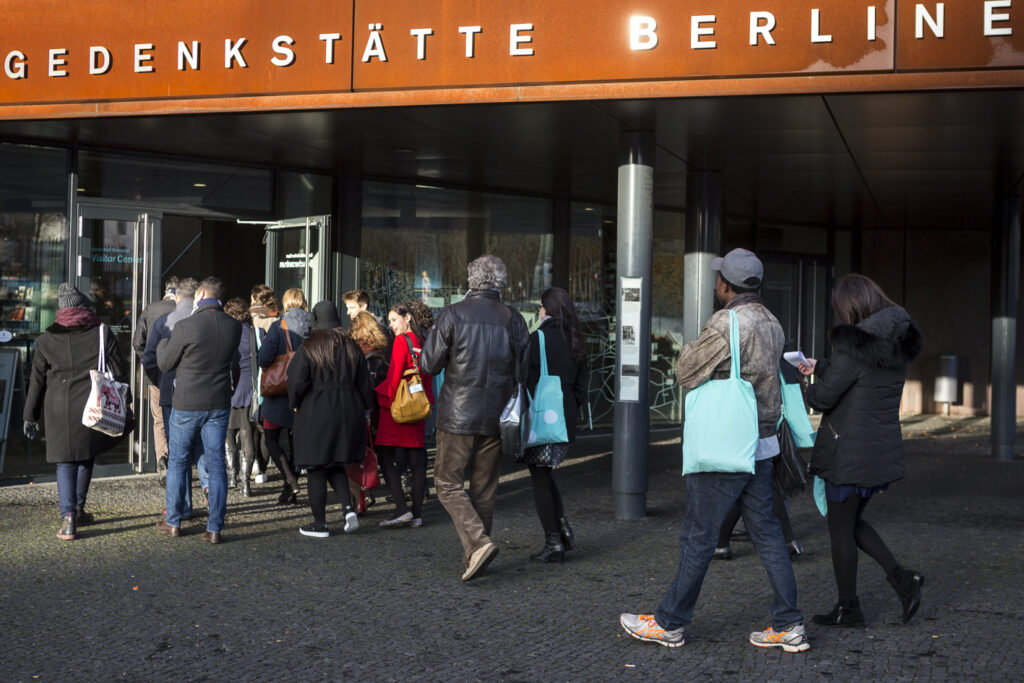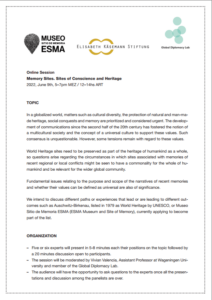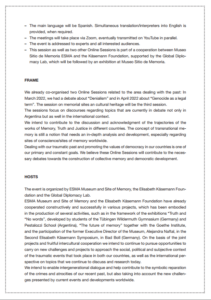Activities
Sessions on Collective Culture of Memory

Format
Topic
In spring 2022, three different online sessions were hosted by the ESMA Museum and Site of Memory, the Elisabeth Käsemann Foundation as well as Julie August and Dr Vivian Valencia on behalf of the Global Diplomacy Lab. The trajectories of the works of collective memory, truth, justice and Democratic Development in different countries were discussed. As the three issues are globally highly relevant, the online sessions, moderated by Vivian Valencia (member of the GDL), offered space for discussions about the concept of transnational memory still being a notion that needs in-depth analysis and further development.
In each session, about six experts presented their positions on the topic, followed by a discussion. Afterwards, participants had the possibility to ask questions. The first session, constructed around the phenomenon of “Denialism”, was hosted by Julia Geneuss, Ricardo Izquierdo, Andrea Pochak and Alejandro Alagia as speakers. “Genocide as a legal term” was the topic of the second session featuring Natalia Barbero, Daniel Feierstein, Kristin Platt und Eduardo Toledo. The last session, “Memorial Sites”, took place in early June and was enrichened by the contributions of Tomasz Michaldo, Eloy Coly, Mayki Gorosito as well as Mauricio Cohen Salam. You can watch the first, second and third session on YouTube.

